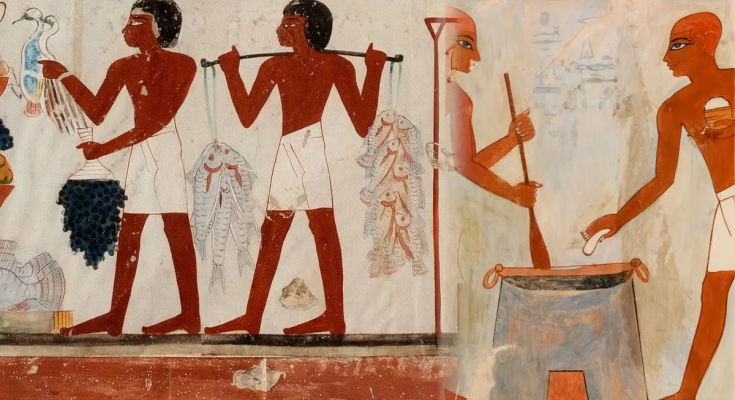In the bustling world of B2B interactions, understanding the nuances of traditional Egyptian dining can be a key differentiator for businesses seeking to build meaningful connections in the vibrant Egyptian market. As Egypt stands at the crossroads of ancient history and modern progress, its traditional culinary heritage is pivotal in shaping business relationships. In this blog post, we’ll delve into the factors businesses should consider when navigating the world of traditional Egyptian dining.
Cultural Significance:
Traditional Egyptian dining is not just about satisfying hunger; it’s a cultural experience deeply rooted in history. Meals are often seen as communal events, fostering a sense of unity and shared identity. Businesses looking to make a lasting impression should appreciate the cultural significance of these gatherings and approach them with a respectful and open mindset.
Venue Selection:
Choosing the right venue is crucial for successful business engagements. Traditional Egyptian restaurants, known as “ahwas,” often provide an authentic atmosphere with traditional music and decor. Opting for such venues can create a conducive environment for meaningful discussions, as the ambiance aligns with the cultural richness of the dining experience.
Timing Matters:
Understanding the temporal aspects of traditional Egyptian dining is essential. While lunch is generally considered the day’s main meal, business dinners are also common. It’s advisable to be aware of local customs and preferences, ensuring that the timing of your business meal aligns with the expectations of your hosts.
Seating Arrangements:
The seating arrangement can convey a lot about the dynamics of a business relationship. In traditional Egyptian dining, the host often takes the lead in directing seating arrangements. Respect for hierarchy is essential, so it’s wise to wait for guidance rather than assuming positions. This subtle yet important detail can set the tone for a positive and respectful interaction.
The Art of Conversation:
Building rapport in the Egyptian business world often involves mastering the art of conversation. Small talk and personal connections are highly valued. Engaging in discussions about local cultural history or even expressing an interest in Egyptian cuisine can go a long way in establishing a genuine connection.
Familiarity with Local Dishes:
Being familiar with traditional Egyptian dishes is a must. Egypt boasts a diverse and flavorful cuisine, with dishes like koshari, ful medames, and molokhia being staples. Demonstrating an appreciation for these local flavors showcases cultural awareness and reflects a genuine interest in the host’s culinary heritage.
Etiquette and Customs:
Respecting local customs and etiquette is paramount. It’s customary to begin a meal with a common greeting, such as “Bismillah” (In the name of Allah). Additionally, accepting food or drink when offered is polite, as it symbolizes hospitality. Observing and adapting to these customs can help foster positive relationships in a B2B setting.
Gift Giving:
The tradition of gift-giving holds great importance in Egyptian culture. A thoughtful gift, such as a token from your home country or a symbolic item, can be a goodwill gesture. It reflects your commitment to the relationship and shows respect for the local customs of reciprocity.
Dietary Preferences:
Consideration of dietary preferences and restrictions is key in traditional Egyptian dining. Many Egyptians adhere to halal dietary practices, so ensuring that menu choices align with these preferences is a sign of respect. Communicating any dietary restrictions in advance demonstrates your commitment to a seamless and enjoyable dining experience.
Patience and Relaxation:
Traditional Egyptian dining is a leisurely affair, and patience is highly valued. Rushing through a meal may be perceived as impolite. Embrace the unhurried pace, allowing the conversation to flow naturally. This relaxed atmosphere contributes to building relationships organically, a crucial aspect of successful B2B interactions.
Traditional Egyptian dining offers a unique blend of cultural richness and culinary delights. For businesses engaging in B2B interactions, understanding and embracing the intricacies of this dining experience can open doors to meaningful connections and successful partnerships. By considering the factors mentioned above, businesses can navigate the world of traditional Egyptian dining with finesse, positively impacting their relationships in this vibrant market.



